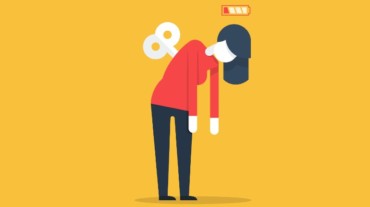
Intermittent fasting is often misunderstood as a diet. It’s an eating pattern that cycles between a period of fasting and a specific period of eating. It doesn’t define what you should eat—rather when you should eat.
Common intermittent fasting practices involve 16 hours fasting per day or fasting for 24 hours twice per week. Owing to its miraculous capacity to help our body lose weight, intermittent fasting is exclusively being used to regulate weight issues.
But along with the obvious and glittering benefits of intermittent fasting come a slew of downsides. Wondering what they are? Read on…
Eating is a social activity. All of our celebrations, festivals, and parties revolve around food. However, the advanced way of eating when you follow intermittent fasting is very different from the usual way of eating for most people. This is because of the short time you have to eat. It can be hard for you to go to parties where everyone is eating and drinking, making you stand out from the crowd.
People who practice intermittent fasting often experience minor physical ailments including: feeling cold, constipation, headache, weakness, irritability and lack of concentration. In fact people may not always feel that they have the strength or the motivation to go out and do the things we love.

Some people tend to experience diarrhea when they eat too much food in too little time. Large amounts of food translate into the extra time needed to digest them. This can cause further stress on your GI tract, leading to improper digestion and constipation.
This can have a significant impact on those with IBS (Irritable bowel syndrome). They already have a sensitive digestive system, GI inflammation, and impaired bowel movements.
Those who are already leading an active lifestyle, or who were lean before the period of fasting, may suffer from hormonal imbalance as a result of this eating pattern. In women, intermittent fasting can lead to irregular menstrual cycles and has the potential to cause reproductive problems. Hormonal imbalances can also lead to sleeplessness, increased stress, or thyroid problems.
Most people who take medications find that taking their prescription with food helps relieve certain side effects. In fact, some medications specifically come with the instructions that they need to be taken before you eat. Taking medications while fasting can be a challenge.
Also, listen:
Select Topics of your interest and let us customize your feed.
PERSONALISE NOWSome people take the feasting period of intermittent fasting as an opportunity to stock up on calories they don’t need. When you’re fasting or you’re anticipating a period of fasting coming up, it is understandable to go hog wild at the first sight of food.
If the fasting element in intermittent fasting were to create some sort of caloric deficit, it’s very possible that the feasting period easily undo it. Moreover foods we choose to eat also have a powerful impact on our health and well being. Intermittent fasting majorly focuses on how much calories we are loading and not the type of calories. Hence you must choose foods while doing intermittent fasting wisely.